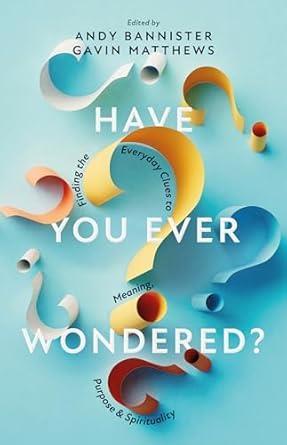We all wrestle with rules — especially the ones that tell us no. But what if the freedom we all seek isn’t in fighting of every perceived restriciton but embracing the rules from the loving rule of the Creator that created us and the universe we occupy.

I was a bit of a handful as a child. Like most kids, the moment I was cautioned not to do something, it rose to the forefront of my to-do list. A roped off chair in a stately home? Now, the most inviting seat in the world — even though I wouldn’t spare it a second glance if it were stationed in my grandma’s living room.
“Don’t skate on that frozen stream!” Well, now you’ve made it even more enticing! Naturally, I couldn’t resist—and ended up wrapped in a blanket, shivering, sporting the lingering scent of potent pond sludge.
I don’t think I’m the only person who has a natural tendency to want to break the rules. Many of us seem to feel – like the great philosopher Rousseau – that rules restrict our freedom and prevent us doing what we desire.
Man was born free, and everywhere he is in chains.
Have you ever wondered if we could live in a world without rules? I’m not talking here about natural laws like gravity and thermodynamics (I think we’re stuck with them), but rather about the rules that govern our society, relationships and culture? Can we be truly free if we have to obey rules?
Everywhere you look: Rules
Everywhere we go, we’re surrounded by them, whether it’s signs telling us not to smoke on the bus, contracts at work, test instructions, linguistic conventions or the laws of the land. Essentially, rules are guidelines or principles that govern how we behave in a particular context. They help us live together harmoniously, clarify expectations, and make social interactions more predictable and manageable.
But not all rules are the same. In sports and games, like Monopoly, most players agree that things run smoother when everyone adheres to the rules (as I found when I tried to introduce my own ‘Double rent for everyone aged over 50’ stipulation half way through a game when I was short of cash).
There are rules of design, stipulating how something’s supposed to work according to the creator. Operating instructions on a product help us use equipment safely and effectively according to the maker’s directions.
There are unwritten rules, customs, and social conventions — we instinctively know not to show up to a job interview in a onesie, even if there’s no official rule against it.
All these types of rules help us to cooperate and work well together. They can enable us to resolve conflict, treat people fairly and understand one another. Most of us would agree that even though these rules restrict our freedom, to a certain extent they are necessary in bringing order to everyday life.
Then there are moral and ethical rules that are often enshrined in law. For example, most people think that murdering someone is unethical and thankfully, most law reflects that.
We may take exception to certain rules in particular (personally, I think it’s high time carrying a plank along a pavement in London was legalised), but most of us would agree that some rules are essential for orderly civil life. Conventions governing activities like music, arts, sport and language are fairly uncontroversial — without them such activities would become meaningless and often impossible to execute.
Whose rules rule?
Ethical and moral rules are a bit more tricky than social conventions or the rules of a board game. There’s a lot at stake for all of us and for our ability to live freely the way we want. Most of us would agree that we need to act ethically, but our ideas of what is ethical vary wildly.
We live in a culture of ‘expressive individualism’ where our inner feelings are seen as the truest guides to life and following our unique ‘internal’ rules leads to the greatest fulfilment. Burger King tells us to ‘Have it your way’. Radio Disney promises to give us ‘Your Music, Your Way’.
As consumers, we’re constantly fed the message that we come first – that our world revolves around us and we make our own rules. But if we all make our own ethical rules, there are inevitably huge clashes. Unlike aesthetic matters, it’s difficult to ‘agree to disagree’ when we’re arguing about whether an unborn child has a right to life as opposed to whether one painting is better than another.
So how do we arbitrate between two different ideas of what’s morally good? Can we live without universal ethical rules or is there an objective moral reality that we can appeal to when we all have different ideas of what’s right? The question is, whose rules rule?

Law that liberates
I want to suggest a way out of this clash of moral codes which has underpinned stable societies for thousands of years. Lots of people see the Bible as a rule book (which it definitely isn’t - it’s more like a library of lots of types of literature telling the amazing story of God and his people).
But there are admittedly some rules in it about how we’re to live our lives, famously including the Ten Commandments and the Sermon on the Mount. If you’re anything like me, you might be suspicious of an ancient text telling you how to live your life. But what if this book was written by the person who actually gave you that life in the first place?
Within the pages of scripture, we see a beautiful picture of human flourishing. The God who knows us intimately (even the worst bits) and loves us completely shows us how we can live life to the full: Whoever looks intently into the perfect law that gives freedom, and continues in it — not forgetting what they have heard, but doing it — they will be blessed in what they do (James 1:25).
The mess and suffering that we see in the world around us are the result of us rebelling against its and our Creator’s loving rule.
We have deliberately gone against our maker’s instructions which has resulted in a lot of brokenness (in the same way that I decided not to follow the instructions that came with my new printer and broke it on the first day).
We think we’re free when we rebel against the rules, but when the rules are for our benefit, breaking them leads to disaster. But fortunately, our story doesn’t have to end there. Although Jesus was the perfect keeper of all God’s rules, he said that his mission was to rescue, save or ‘redeem’ rule-breakers like us. Referring to himself, Jesus said, if the Son sets you free, you will be free indeed (John 8:36).That begins when he takes upon himself all the consequences of our rebellion and offers us all the benefits of his obedience. These are things we can access by faith.
And if the rules set out in the Bible are given to us by our creator who knows us intimately and knows how we’re designed to flourish, then they’re definitely worth investigating.
If a natural rule-breaker like me can find them freeing, then maybe you can too. Once we understand the loving character of the God who made us, then living the way he’s designed us to live and thrive as individuals and in community makes a whole lot more sense. And it might just prevent us ending up in the metaphorical stinking pond sludge.
Have You Ever Wondered? by Andy Bannister and Gavin Matthews is out now. You can also get a FREE COPY when you subscribe to Premier Christianity magazine



































No comments yet